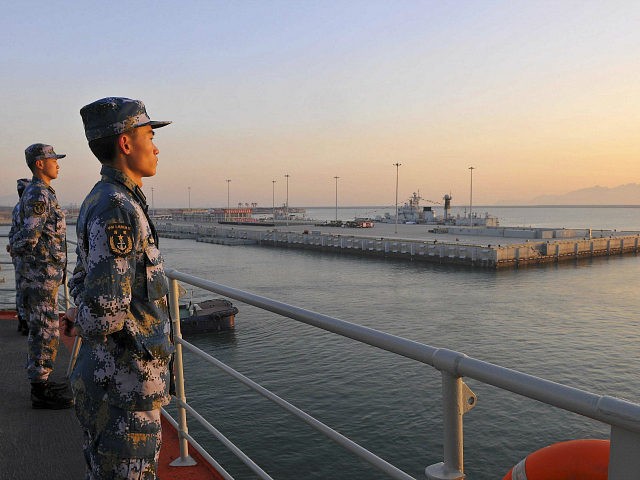China’s ambassador to Russia, Li Hui, told media Monday that it was essential for China to ignore the Hague’s verdict against it in the South China Sea case in order to “protect the dignity of international law.”
The statement preceded a declaration from the Chinese Supreme People’s Court that “trespassers” (non-Chinese nationals) navigating the waters the Hague ruling confirmed did not belong to China would be subject to prosecution for illegally entering China.
The Permanent Court of Arbitration at the Hague ruled last month, in the case Philippines v. China, that the Chinese government did not have the right to construct artificial islands in the Spratly and Paracel Island chains or the Scarborough Shoal, and the waters around these disputed territories were not Chinese. China claims territory in the South China Sea that belongs to the Philippines, Vietnam, Malaysia, Brunei, and Taiwan, and the waters off Indonesia’s Natuna Island.
“China defends the settlement of the South China Sea dispute through dialogue and consultation with the directly involved countries on the basis of respect for historical facts and international law, with the aim to maintain peace and stability in the region,” ambassador Li is quoted as stating in Xinhua, a state-run news outlet. He disparaged the verdict has having “no legal basis” and noted that China needed to disregard the verdict — which is binding, though the Hague tribunal has no enforcement mechanism — to “protect the dignity of international law.”
A day later, Chinese Supreme People’s Court announced that it had found that China has a right to arrest non-Chinese nationals in the waters by the disputed territories, even if they were navigating what to them would be home waters, in the interest of fishing or hunting. The court claimed it could issue rulings regarding waters that did not belong to China, as the Hague concluded, because “people’s courts’ jurisdiction over the Diaoyu [Japan’s Senkaku], Huangyan [Scarborough Shoal] and Xisha [Paracel] Islands and its adjacent sea areas has never stopped.”
“Illegally entering Chinese waters,” defined as the aforementioned international territories, could result in a conviction and up to one year in prison, CNN notes. In addition to installing multiple military facilities in the disputed territories, China has also attacked Filipino and Vietnamese civilian fishermen, with Chinese Coast Guard sinking several Vietnamese fishing vessels.
In addition to the new policy, China has scheduled military drills with Russia in the disputed territory, arguing that it consists of sovereign Chinese waters.
Despite the Philippine government being the plaintiff in the Hague case. Chinese media has largely focused on attacking external powers for statements supporting Philippine claims, not the Philippines itself. This is partly due to a transfer of power in the Philippines; President Benigno Aquino, who began the litigation, has since completed his term and yielded power to incumbent Rodrigo Duterte. Duterte has used significantly milder language against China than Aquino and has suggested dialogue.
Instead, China has focused its ire on Japan — alleging a retired Japanese judge pushed the Hague to decide against China — and nations like Australia, who have come out in support of the international tribunal.

COMMENTS
Please let us know if you're having issues with commenting.